Choose a report:
➤
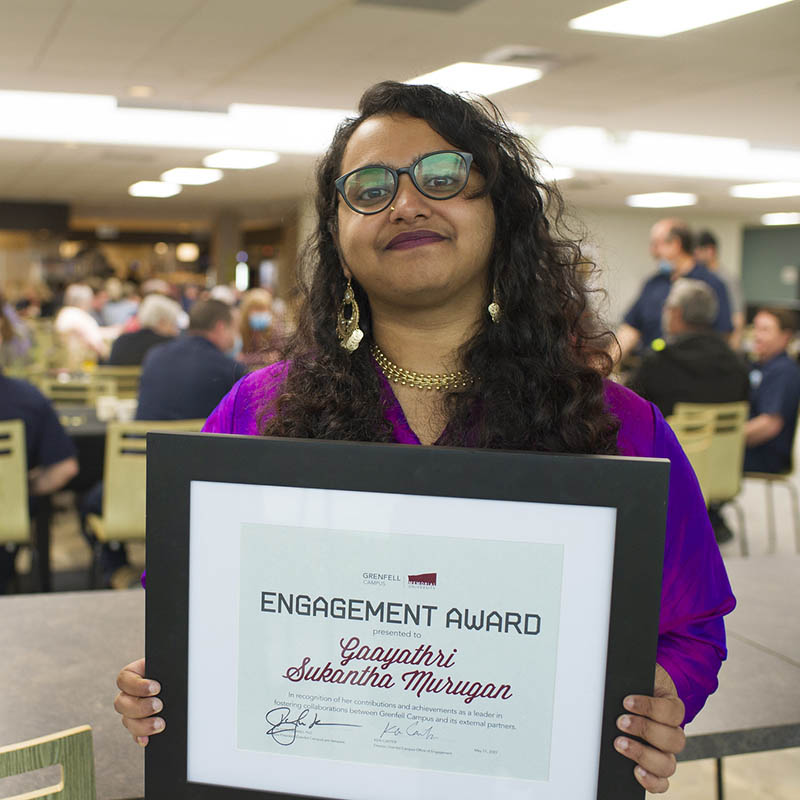
Office of Engagement
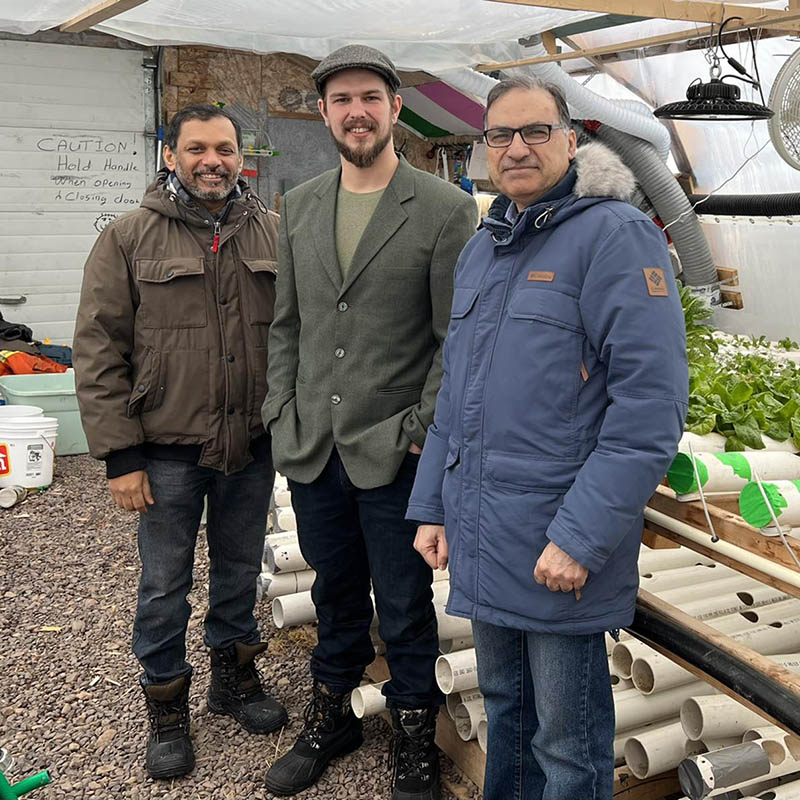
Community Engaged Research
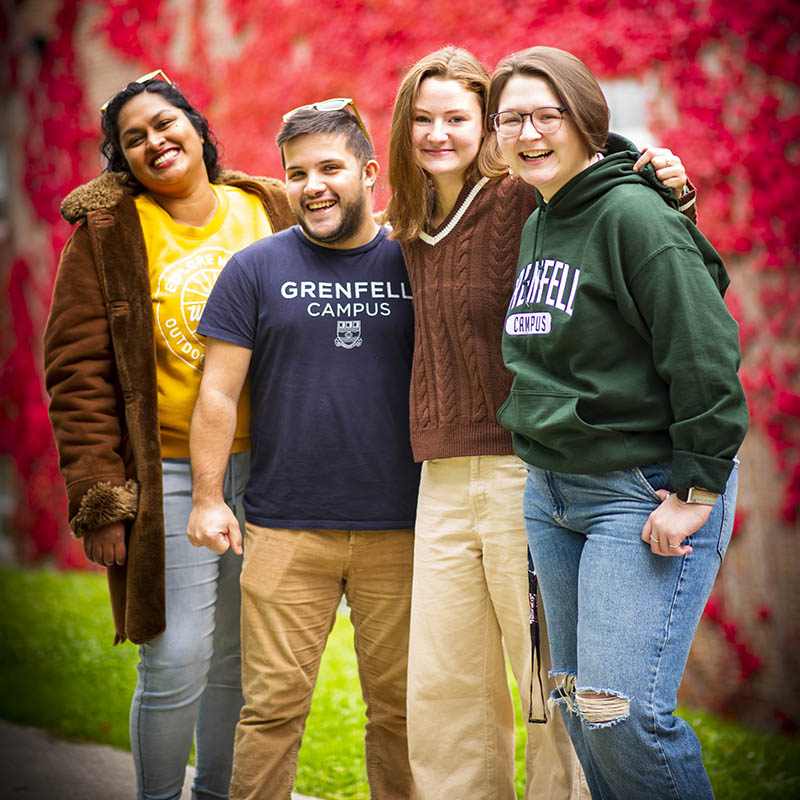
Community Engaged Learning
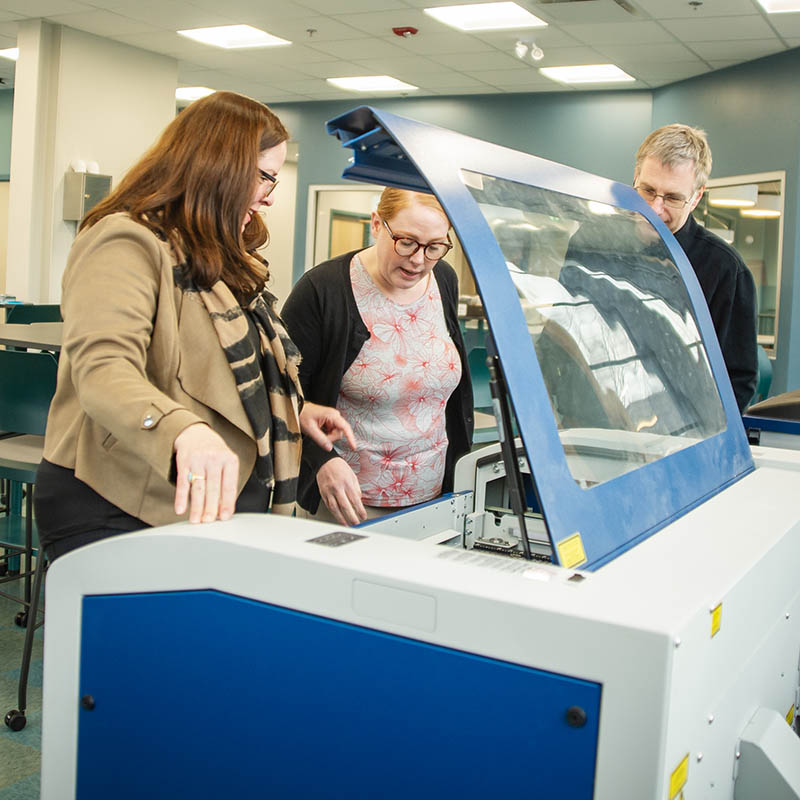
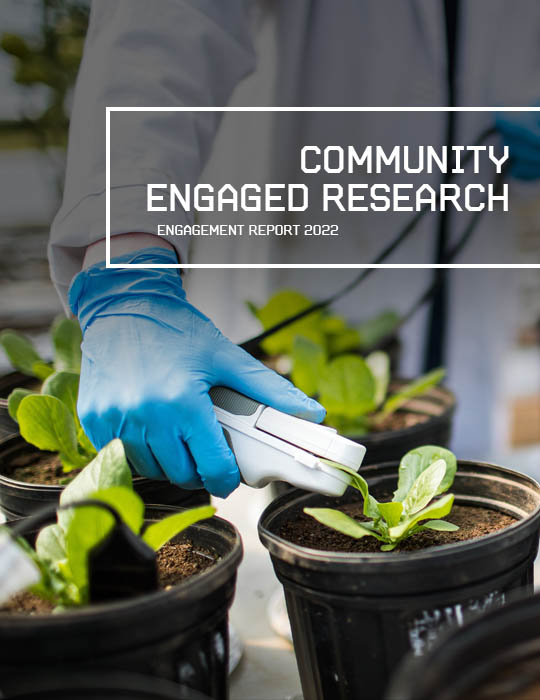
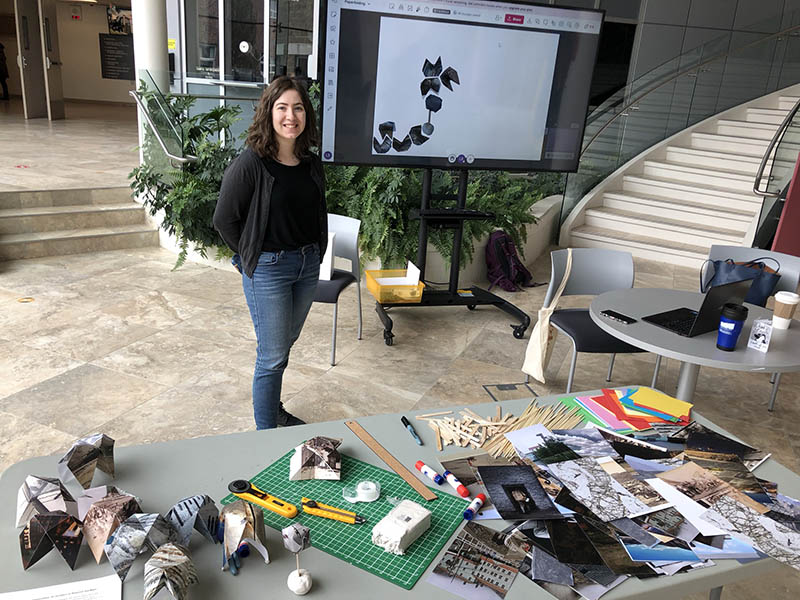
PhD candidate Leanna Butters hosted a paper-folding project that responds to the spatial, temporal and visual aspects of her research around mining and fences.
Grenfell Campus has a long history of interdisciplinarity. The structure based on multi-disciplinary schools rather than disciplinary-centric departments allows for close contact with experts in other fields on a near-daily basis. With a new interest from the Tri-Agency, interdisciplinary research projects now have more chances of successful funding than ever before. Interdisciplinarity allows us to explore questions that lie at the edges and collide within spaces between disciplines. These questions often come from searching for solutions to wicked challenges such as climate change, resilience and sustainability. Applied research projects can be transformative for society and the people that research them. Working in interdisciplinary settings puts us in a vulnerable space, surrounded by new concepts, new people and new ideas. Nevertheless, it is within this vulnerability that we can find the strength to ask difficult questions. To be comfortable in this vulnerable state, we need to communicate effectively and trust the people around us. From this place is where InterD, the Grenfell Interdisciplinary Research Hub, draws inspiration: building interdisciplinary relationships, and research, from the ground up.
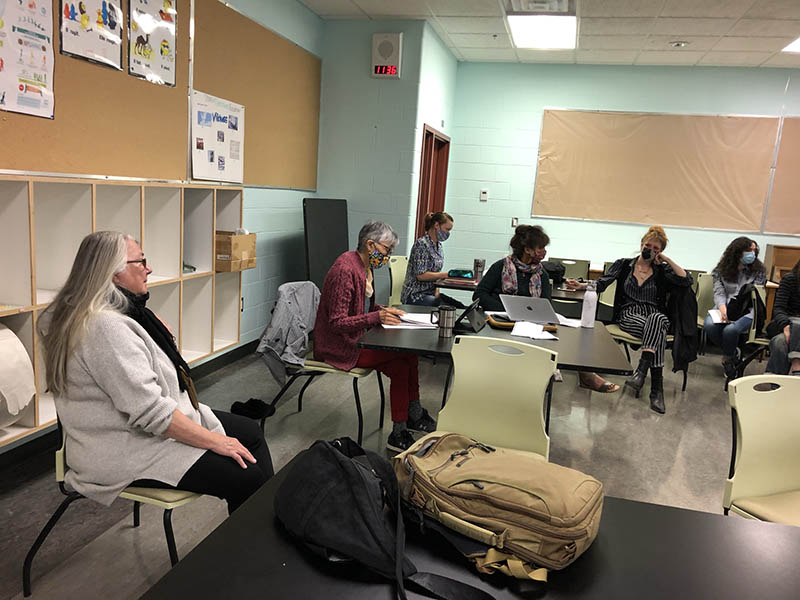
Keynote speaker Dr. Pam Hall met with graduate students for a roundtable discussion.
The inaugural workshop hosted by InterD opened with remarks from Grenfell VP, Dr. Ian Sutherland, followed by an opening prayer from Chief Brendan Mitchell, Qalipu First Nation.
The keynote address, titled "Making Methods: Protocols and Poetics in and Around an Encyclopedia of Local Knowledge," was delivered by Dr. Pam Hall. Dr. Hall is an interdisciplinary artist and scholar whose work has been exhibited across Canada and internationally, and is represented in many corporate, private and public collections, including the National Gallery of Canada. Her artistic practice includes installation, drawing, object-making, photography, film, writing, community-engaged collaboration and performance and has explored the fisheries, the body, female labour, placemaking, the nature of knowledge and notions of the "local". Her work is often collaborative and includes communities distant from the pristine spaces of the gallery, the studio, and the museum. Research has been central to Hall's practice for many years. Dr. Hall is the creator of the multi-year, multi-chapter art-and-knowledge project Towards an Encyclopedia of Local Knowledge (ELK) which has been exhibited extensively, is owned by multiple rural communities and is permanently installed on the walls of the reference room at Memorial University's QEII Library. The third chapter of the ELK was created with Mi'kmaq artist, Jerry Evans, and is currently on display at the Gros Morne Discovery Centre in Woody Point, NL. Entitled Miawpukek: The Middle River, it is due for publication in English and Mi'Kmaq in the Spring of 2022.
A Panel Discussion titled Research Methods across Disciplines included panelists Dr. Rachel Webb Jekanowski, who delivered a presentation titled "Doing research sustainably: Low carbon methods;" Dr. Camille Ouellet Dallaire, "Researching sustainability through scenarios;" and PhD candidate Shasanka Chalise, "Researching with limited resources. Is it possible?" The panel was moderated by Dr. Amanda Hancock.
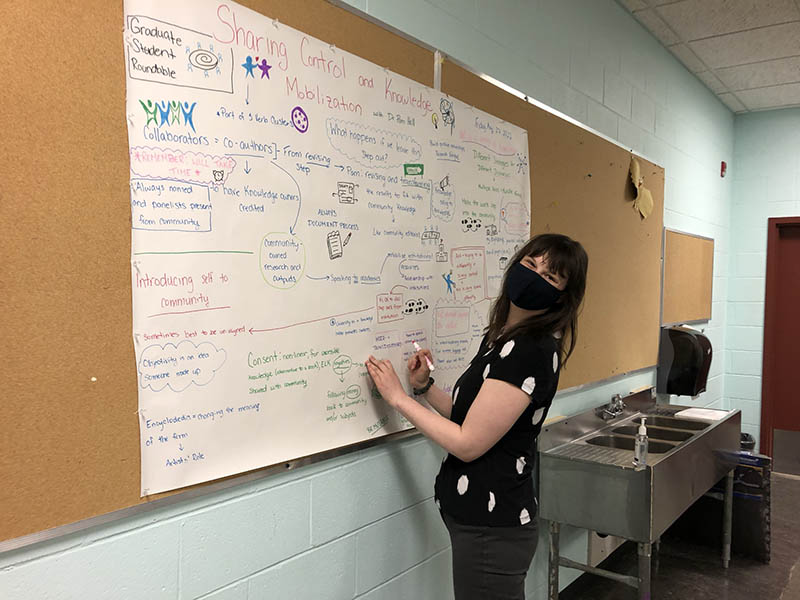
PhD student Sara Langer captured the discussions at the roundtable and the panel graphically.
Art engagement activities included "Paper Folding and Mining Temporalities: An invitation to Respond and Make," hosted by PhD candidate Leanna Butters. The activity was a cumulative paper-folding project that responds to the spatial, temporal and visual aspects of her research around mining and fences.
During the Graduate Student Roundtable with Pam Hall, as well as during the panel, PhD student Sara Langer captured the discussion graphically. Graphic recording is a visual form of note taking. This illustrative process can support dialogue by capturing different points of view and mapping out complex systems for a collective reference.
Throughout the workshop, an installation by Syd Lancaster was available for viewing. Titled MACROMAREAL (a rising tide lifts all boats), the installation is a part of a larger collaborative body of work developed by visual artist Syd Lancaster and sound artist/composer Scott Smallwood. This project approached the tidal range of the Bay of Fundy and its documentation in tide tables and real data through a series of interrelated works that explored ways of understanding natural processes, and our relationship to those processes as perceived from different vantage points and through different scales of time.
For more information about the workshop and full biogrpahies, please review the full program. InterD thanks its sponsors, the Future Ocean and Coastal Infrastructure Project (FOCI), the Grenfell Office of Research and Graduate Studies, and Grenfell VP Dr. Ian Sutherland.